Filter by
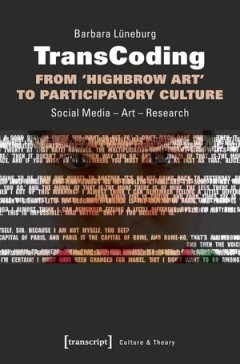
TransCoding - From `Highbrow Art' to Participatory Culture: Social Media - Ar…
Between 2014 and 2017, the artistic research project "TransCoding - From 'Highbrow Art' to Participatory Culture" encouraged creative participation in multimedia art via social media. Based on the artworks that emerged from the project, Barbara Lüneburg investigates authorship, authority, motivational factors, and aesthetics in participatory art created with the help of web 2.0 technology. The…
- Edition
- -
- ISBN/ISSN
- 9783839441084
- Collation
- -
- Series Title
- -
- Call Number
- 301 LUN t
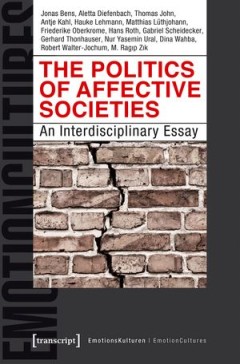
The Politics of Affective Societies: An Interdisciplinary Essay
Many claim that political deliberation has become exceedingly affective, and hence, destabilizing. The authors of this book revisit that assumption. While recognizing that significant changes are occurring, these authors also point out the limitations of turning to contemporary democratic theory to understand and unpack these shifts. They propose, instead, to reframe this debate by deploying th…
- Edition
- -
- ISBN/ISSN
- 9783839447628
- Collation
- -
- Series Title
- -
- Call Number
- 301 POL p
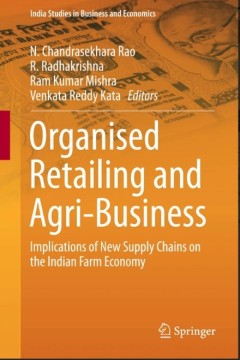
Organised Retailing and Agri-Business : Implications of New Supply Chains on …
This book examines the performance of organized retail chains supplying the agri-input and output services in terms of achieving their objective of utilising collective bargaining power in the marketing of their agricultural produce, integrating empirical experience from India and other selected developing countries. The scenario of marketing for agricultural products has been undergoing rapid …
- Edition
- -
- ISBN/ISSN
- 978-81-322-2476-1
- Collation
- -
- Series Title
- India Studies in Business and Economics
- Call Number
- 338.1 ORG
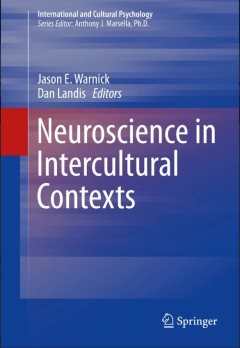
Neuroscience in Intercultural Contexts
This breakthrough volume brings together cultural neuroscience and intercultural relations in an expansive presentation. Its selected topics in reasoning, memory, and other key cognitive areas bridge the neuroscience behind culture-related phenomena with the complex social processes involved in seeing the world through the perspective of others. Coverage ranges beyond the familiar paradigms of …
- Edition
- 1
- ISBN/ISSN
- 1571-5507
- Collation
- XXX, 263
- Series Title
- International and Cultural Psychology
- Call Number
- -

The World of Bereavement Cultural Perspectives on Death in Families
This visionary work explores the sensitive balance between the personal and private aspects of grief, the social and cultural variables that unite communities in bereavement, and the universal experience of loss. Its global journey takes readers into the processes of coping, ritual, and belief across established and emerging nations, indigenous cultures, and countries undergoing major upheavals…
- Edition
- -
- ISBN/ISSN
- 978-3-319-13945-6
- Collation
- -
- Series Title
- -
- Call Number
- -

The WTO and Food Security Implications for Developing Countries
- Edition
- -
- ISBN/ISSN
- 978-981-10-2179-4
- Collation
- -
- Series Title
- -
- Call Number
- -
- Edition
- -
- ISBN/ISSN
- 978-981-10-2179-4
- Collation
- -
- Series Title
- -
- Call Number
- -
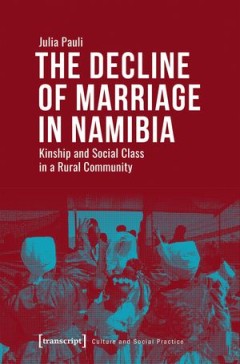
The Decline of Marriage in Namibia: Kinship and Social Class in a Rural Commu…
In Southern Africa, marriage used to be widespread and common. However, over the past decades marriage rates have declined significantly. Julia Pauli explores the meaning of marriage when only few marry. Although marriage rates have dropped sharply, the value of weddings and marriages has not. To marry has become an indicator of upper-class status that less affluent people aspire to. Using the …
- Edition
- -
- ISBN/ISSN
- 9783839443033
- Collation
- -
- Series Title
- -
- Call Number
- 301 PAU d
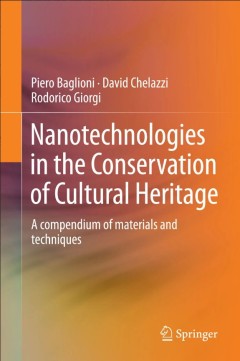
Nanotechnologies in the Conservation of Cultural Heritage
This book presents novel applications of nanotechnology for the preservation of artistic and historical artifacts. It explains the scientific principles behind numerous nanomaterials and discusses their applications to different types of common movable and fixed artistic substrates. It starts with an overview of the nano-tools developed over the last three decades, such as dispersions of nanopa…
- Edition
- 1
- ISBN/ISSN
- 978-94-017-9302-5
- Collation
- X, 144
- Series Title
- -
- Call Number
- -
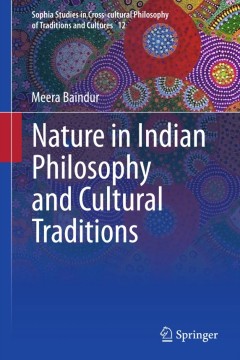
Nature in Indian Philosophy and Cultural Traditions
Working within a framework of environmental philosophy and environmental ethics, this book describes and postulates alternative understandings of nature in Indian traditions of thought, particularly philosophy. The interest in alternative conceptualizations of nature has gained significance after many thinkers pointed out that attitudes to the environment are determined to a large extent by our…
- Edition
- 1
- ISBN/ISSN
- 978-81-322-2999-5
- Collation
- XV, 219
- Series Title
- Sophia Studies in Cross-cultural Philosophy of Traditions and Cultures
- Call Number
- -
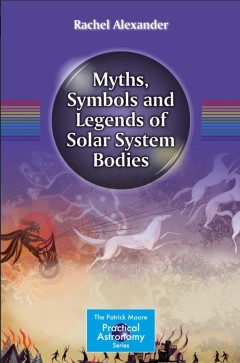
Myths, Symbols and Legends of Solar System Bodies
This book is an amateur astronomer’s guide to the mythology and symbolism associated with the celestial bodies in the Solar System, and even includes some of the legendary tales of people who had or have a connection with these objects. It explores different cultures (for example, the Greco-Roman and the Norse) and different times and how stories were used to explain the worlds they saw above…
- Edition
- 1
- ISBN/ISSN
- 978-1-4614-7066-3
- Collation
- XVI, 234
- Series Title
- The Patrick Moore Practical Astronomy Series
- Call Number
- -
 Computer Science, Information & General Works
Computer Science, Information & General Works  Philosophy & Psychology
Philosophy & Psychology  Religion
Religion  Social Sciences
Social Sciences  Language
Language  Pure Science
Pure Science  Applied Sciences
Applied Sciences  Art & Recreation
Art & Recreation  Literature
Literature  History & Geography
History & Geography